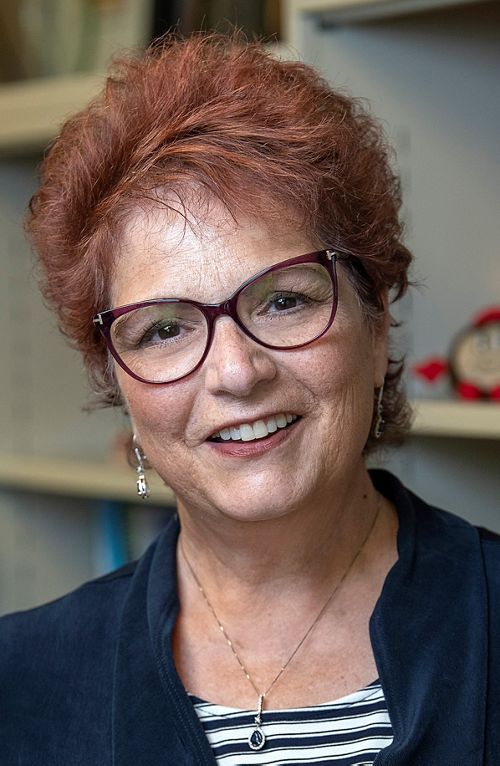St. Jude Family of Websites
Explore our cutting edge research, world-class patient care, career opportunities and more.
St. Jude Children's Research Hospital Home

- Fundraising
St. Jude Family of Websites
Explore our cutting edge research, world-class patient care, career opportunities and more.
St. Jude Children's Research Hospital Home

- Fundraising
Community-engaged Transdisciplinary Approaches to Cervical Cancer Prevention in Appalachia
January 2024
It’s no secret that rural, especially Appalachian, communities experience greater disease burden and health disparities compared to their urban counterparts. Funded by the National Cancer Institute (NCI) to help reduce cervical cancer incidence and mortality in Appalachian communities, Take CARE (Clinical Avenues to Reach Health Equity) was designed to address factors strongly associated with cervical cancer and is comprised of three evidence-based, complementary initiatives focused on HPV vaccination (I Vaccinate), smoking cessation (Break Free), and cervical cancer screening (HOME). Our transdisciplinary team uses implementation science methods and an integrated approach to reduce cervical cancer risk among patients from 10 participating health care systems across Appalachian counties of Kentucky, Ohio, Virginia, and West Virginia, with Ohio State University, University of West Virginia, University of Kentucky, and University of Virginia teams.

“Patients and families in rural communities may require more encouragement about HPV vaccination than their urban neighbors. Providers must offer a strong vaccine recommendation to patients as young as age nine and approach every patient, every time. Health centers can educate their communities about HPV and HPV vaccines not only through patient visits, but also at community events and through social media outreach.”
Electra D. Paskett, PhD
The two-phased project began with a one-year formative phase in which community and clinic profiles were developed to understand better influencing social determinants of health, the cancer burden and available resources. Community members and clinic staff shared thoughts about barriers to HPV vaccination and cervical cancer screening and norms about vaccination, screening, and tobacco cessation. We trained clinic champions to spearhead and coordinate local efforts and formed clinic-based implementation teams to support them.
The early implementation of health systems started in October 2020, and the delayed health systems started 12 months later. I Vaccinate, which is focused on HPV vaccination, was implemented first as an initiative promoting HPV vaccination in 9–45-year-olds. Health systems received vaccine reminder magnets for patients, lapel pins, wall posters for initiative visibility, and educational materials designed for patients of various ages, parents of patients, and providers. Providers reviewed and selected materials and strategies and set short- and long-term goals to improve vaccination. Champions and implementation teams regularly met with state research coordinators to report progress, troubleshoot challenges and adjust goals as needed. The smoking cessation and screening initiatives were sequentially introduced in the months after I Vaccinate, layered on top of the previously implemented initiatives, and ultimately presented as a bundled intervention. All systems participated in a sustainability period to continue the bundled implementation with reduced contact from respective university teams. Analyses will focus on changes in HPV vaccination, smoking cessation, and cervical cancer screening over time.
Currently entering our final year of the program, we are enthused by the feedback we’ve received from rural partners. We have heard that reminder magnets are a great tool for completing the HPV vaccination series. Provider prompts and vaccine reminder systems in health management software enable staff to approach age-appropriate patients at every encounter, and alternatives to standard office visits, such as parking lot vaccination days and outings to health fairs and other community events are effective ways to deliver information and vaccines broadly.
We are proud that Take CARE offers an innovative, collaborative and culturally appropriate approach to cervical cancer prevention in rural Appalachian communities. This initiative builds on the progress of prior work by a skilled and dedicated multi-state program team, relying on theory-driven frameworks and community-engaged processes to create sustainable approaches to reduce cervical cancer incidence and mortality for our valuable rural communities.
Electra D. Paskett, PhD, is the Marion N. Rowley Professor of Cancer Research at The Ohio State University, Director of the Division of Cancer Prevention and Control in the College of Medicine, a professor in the Division of Epidemiology in the College of Public Health, Associate Director for Population Sciences and Community Outreach and Founding Director of the Center for Cancer Health Equity at the James Cancer Hospital. She was a member of the National Cancer Institute’s National Cancer Advisory Board and the Ohio Commission on Minority Health. Her studies use multi-level interventions in transdisciplinary teams with community-based participatory research to identify and intervene on factors contributing to disparities among underserved populations, including rural and Appalachian populations and social and ethnic minority groups.